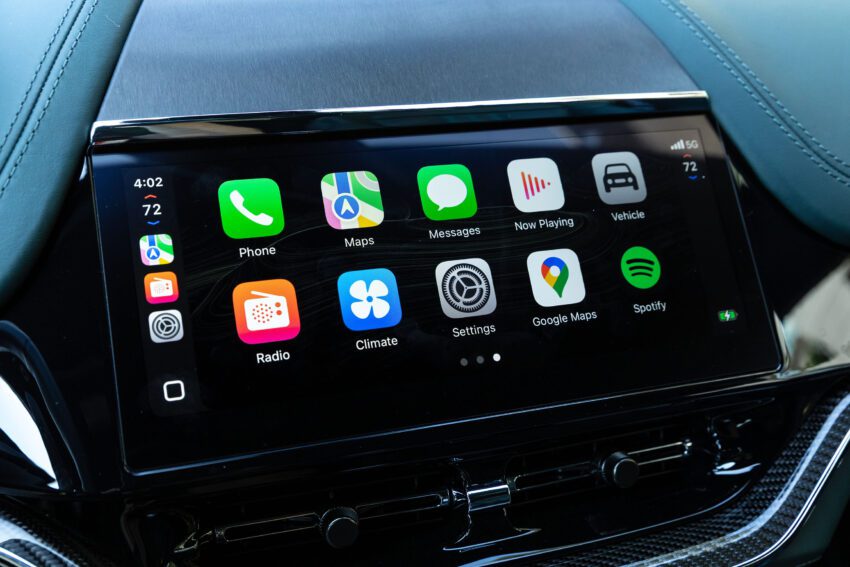
gm isn t ready to rip off General Motors (GM) has clarified its position regarding the future of Apple CarPlay and Android Auto in its vehicles, following recent comments from CEO Mary Barra that sparked considerable discussion.
gm isn t ready to rip off
Background on GM’s Strategy
In recent years, the automotive industry has undergone a significant transformation, with a growing emphasis on software integration and connectivity. As vehicles become increasingly defined by their software capabilities, automakers are re-evaluating their approaches to in-car technology. GM is no exception to this trend, as it seeks to modernize its fleet and enhance the user experience for its customers.
Mary Barra’s remarks during a recent interview on the Decoder podcast indicated that GM is planning to phase out Apple CarPlay and Android Auto in its gasoline-powered vehicles. This statement raised eyebrows, especially considering that these features have become standard in many modern vehicles, providing users with seamless integration of their smartphones into the car’s infotainment system.
Clarification from GM
Following the initial reactions to Barra’s comments, GM quickly moved to clarify its position. Malorie Lucich, a spokesperson for the company, emphasized that there would be no immediate changes to existing vehicles. “We are not making any changes to existing vehicles,” she stated. “If your car supports Apple CarPlay or Android Auto, that will continue. Both will remain available in all GM gas-powered vehicles for the foreseeable future.”
This statement underscores GM’s commitment to maintaining the current functionality of its vehicles while transitioning to a more integrated technological framework. Lucich further noted that the company is focused on delivering experiences that customers love, highlighting the importance of collaboration with tech giants like Apple and Google.
Transition to a Centralized Computing Platform
One of the key components of GM’s strategy involves the rollout of a new centralized computing platform. This system aims to streamline vehicle operations by reducing the number of control modules, thereby enhancing the efficiency of over-the-air software updates. The centralized platform is designed to improve the overall user experience and facilitate the integration of advanced features.
Barra indicated that the transition to this new platform would occur gradually, aligning with the launch of new vehicle models. “As we move forward with each new vehicle and major new vehicle launch, I think you’re going to see us consistent on that,” she remarked during the podcast. This suggests that the phasing out of Apple CarPlay and Android Auto will not happen abruptly but will coincide with GM’s broader technological advancements.
Timeline for Implementation
The new centralized computing platform is set to debut in the Cadillac Escalade IQ in 2028. Following this initial rollout, GM plans to extend the platform to its gasoline-powered lineup. This timeline indicates that while the company is moving towards a more integrated system, existing vehicles will continue to support popular smartphone mirroring technologies for the foreseeable future.
Industry Implications
GM’s decision to eventually phase out Apple CarPlay and Android Auto raises several questions about the future of in-car technology. As automakers increasingly focus on creating proprietary systems, the reliance on third-party applications may diminish. This shift could lead to a more cohesive user experience but may also alienate customers who prefer the familiarity of their existing smartphone interfaces.
Moreover, the move aligns with a broader industry trend toward software-defined vehicles. As cars become more connected and reliant on software, manufacturers are investing heavily in developing their own platforms. This shift could result in a more personalized driving experience, as automakers seek to tailor features to individual customer preferences.
Stakeholder Reactions
The automotive industry is closely monitoring GM’s strategy, particularly as it relates to consumer preferences and technological advancements. Stakeholders, including automotive analysts and consumers, have expressed a mix of curiosity and concern regarding the implications of GM’s plans.
Some industry experts argue that while a proprietary system may offer benefits in terms of integration and functionality, it could also lead to fragmentation in the user experience. Consumers have grown accustomed to the convenience of Apple CarPlay and Android Auto, and any disruption to this familiarity may be met with resistance.
Consumer Preferences
Consumer preferences play a crucial role in shaping the direction of automotive technology. Many drivers appreciate the seamless integration of their smartphones into their vehicles, allowing them to access navigation, music, and communication apps without distraction. The potential removal of these features could lead to dissatisfaction among loyal GM customers who value this convenience.
Additionally, the competitive landscape of the automotive industry means that GM must remain vigilant about consumer trends. Other automakers are also investing in their own software platforms, and the ability to attract and retain customers will depend on the effectiveness and appeal of these systems.
Future of In-Car Technology
The future of in-car technology is poised for significant evolution as automakers like GM explore new avenues for enhancing the driving experience. The integration of advanced features, such as artificial intelligence and machine learning, could lead to more personalized interactions between drivers and their vehicles.
Moreover, as electric vehicles (EVs) become more prevalent, the demand for innovative in-car technology will likely increase. Consumers are expected to seek out vehicles that not only offer sustainability but also provide cutting-edge connectivity and entertainment options.
Collaboration with Tech Giants
GM’s ongoing collaboration with tech giants like Apple and Google will be critical as the company navigates this transition. By leveraging the expertise of these companies, GM can enhance its own technological capabilities and ensure that its vehicles remain competitive in a rapidly changing market.
As the automotive landscape continues to evolve, the relationship between automakers and technology companies will likely deepen. This collaboration could lead to the development of new features and services that enhance the overall driving experience, ultimately benefiting consumers.
Conclusion
In summary, GM’s recent statements regarding the future of Apple CarPlay and Android Auto have sparked considerable discussion within the automotive industry. While the company is indeed planning to phase out these features in its gasoline-powered vehicles, it has clarified that this transition will not occur overnight. Existing vehicles will continue to support these popular technologies for the foreseeable future, allowing customers to enjoy the convenience they have come to expect.
As GM moves toward a centralized computing platform, the implications for in-car technology are significant. The gradual rollout of this system will coincide with new vehicle launches, allowing the company to enhance the user experience while maintaining collaboration with tech giants. The future of in-car technology remains uncertain, but GM’s approach reflects a broader industry trend toward software-defined vehicles that prioritize connectivity and personalization.
Source: Original report
Was this helpful?
Last Modified: October 27, 2025 at 11:37 pm
1 views














